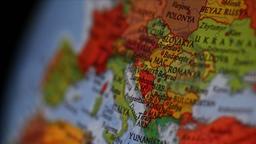Facebook is about to go public. The company’s value is estimated at $100 billion and the personal wealth of its 27 year-old founder, Mark Zuckerberg, at $27 billion. Facebook is ten times as valuable as Turkey’s biggest company, Tüpraş, and Zuckerberg’s personal wealth is three times the total wealth of the richest Turkish family.
But what if Mark Zuckerberg had not been born in New York, but in Istanbul? Where would he be now if he were Turkish, with the same IQ and appearance? Here are the five most likely options in my opinion:
- He would market a Facebook-clone business in Turkey and raise $10-15 million, becoming one of the brightest Internet entrepreneurs in the country.
- If he came from Bosporus money, he would be an executive at the Fenerbahçe football club.
- He would go to an American university and attempt to be an entrepreneur, but achieve only limited success as he was raised by the mentality of the Turkish Ministry of Education.
- He would study for the university entrance exam, major in computer engineering at a Turkish university, and work for a local software company.
- He would overheat studying for the Student Selection Examination (ÖSS) [1] and end up with a mediocre career and life.
The possibilities are infinite of course. But, one thing is certain: If Zuckerberg had been born in Turkey, he could not have had a story of entrepreneurship and innovation on this scale. If you disagree, please try to find a story from Turkey where a young person in his or her twenties creates a billion-dollar trademark solely by his or her own means.
But why can Turkey not have a Zuckerberg of its own? This can be explained by the flaws of the entrepreneurship and innovation ecosystem. The problem is not Turkish people themselves, but the ecosystem in which they live. Referring to Facebook’s story, three things are absent or missing in Turkey’s case:
- Talent and skills. Zuckerberg studied computer science and psychology. Indeed, Facebook lies at the intersection of these two disciplines. Most innovations arise this way, through the interaction of different discipline. I am not sure whether Turkey’s system is able to gather up people or discover talent and skills, but let’s for a minute say it does, and a bright idea comes to the stage of incorporation. How successful is Turkey in raising the human resources able to manage this process? Are young people able to follow global developments and contribute to them in a meaningful way? How successful are we at teaching young people English, perhaps the most fundamental skill in this regard? [2]
- Access to finance and location. Having brought the idea to maturity at Harvard, Zuckerberg made a strategic decision, to drop out of school and move to the Silicon Valley where he could drum up business. There, he had better access to sources of finance as well as to strategic partners, networks and human resources which could facilitate the healthy growth of his company. Though venture capital opportunities in Istanbul have flourished recently, I am not sure whether they can grow further to resemble the depth and scope of Silicon Valley. Izmir could be a more conducive location for ventures given its geographical advantages and quality of life. However, Turkey has not made any investment to utilize the innovative capacity of the city. Ankara’s technology zones are fairly decent, but the notable absence of sidewalks on their streets makes me doubt the city’s capacity to attract bright young people.[3]
- Institutional infrastructure and legal framework. Turkey’s lack of an institutional infrastructure similar to that which Zuckerberg enjoyed is a major deficit. We can enumerate many issues here, from badly enforced intellectual property rights to insufficient dispute resolution mechanisms and the poor quality of courts. For example, during the incorporation of Facebook, Zuckerberg faced a critical dispute. He was accused of stealing the idea of Facebook, which is a just claim to some extent. Thanks to the strong institutional infrastructure of the United States, however, he was able to settle with the Winklevoss twins and scale up his business. [4] It is difficult to predict what the outcome would be if a similar dispute was to hit Turkey’s courts. At best, he would be known as “Eight-Finger Mark” until the end of his days.
Let me finish with some questions that have been lingering in my mind. These might be a good starting point for understanding the flaws of Turkey’s ecosystem: Why do Turkey’s successful entrepreneurs just clone the working business models abroad, instead of developing new ideas? This is especially prevalent on the Internet and in the media. Why do the most successful television producers, for example, copy shows that have succeeded abroad and make tons of money without developing any ideas of their own? Why are the trashy programs of Flash TV the most original shows in Turkey? Why can’t the youth teams of Fenerbahçe manage to train a soccer star like Alex de Souza?
In a nutshell, just as Ankara’s ecological system is uninhabitable to tigers and zebras (it is only conducive for cats and goats), so is Turkey’s entrepreneurial and innovative ecosystem unfit to produce a Mark Zuckerberg, Steve Jobs or Bill Gates. We cannot change ecology, but we can change our economic structure.
Esen Çağlar, TEPAV Economic Policy Analyst, http://www.tepav.org.tr/en/ekibimiz/s/1025/Esen+Caglar
[1] We called it the ÖSS. I do not know what its name is now as the system is revised continuously. It should be a funny abbreviation like LGS, LYS, YGS, or ÖSYM-GY!
[2] http://www.tepav.org.tr/en/haberler/s/2537
[3] http://www.tepav.org.tr/en/kose-yazisi-tepav/s/2962
[4] I recommend you to watch The Social Network, if you have not yet: http://www.imdb.com/title/tt1285016/




